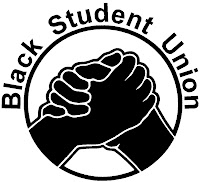Tuesday Morning - Michelle Branch (mp3)
Deeper - Hanson (mp3)
 I love Michelle Branch.
I love Michelle Branch.No, I don't love her love her, not like I love Sandra Bullock or Patty Griffin or... OK, or my wife. I'm not guilty of Love in the 3rd Degree, as those Alabama bastards might croon. It's more like a 2nd degree burn.
I've loved her quite a lot ever since BOTG buddy John burned me a copy of her first CD, The Spirit Room back in 2001. She was 18 when that bad boy was hitting the shelves.
My radio boycott began in full right at the turn of the 21st Century, so I hadn't heard anything of her when John gave me her CD. I had no idea that "Everywhere" had wowed the MTV crowd. I couldn't stop playing "All You Wanted," though. I played the album start to finish a ton, and for more than a year it hardly left my car's CD player.
Even now listening to that song reminds me of driving through the mountains of western North Carolina late at night, windows rolled down to stay awake, pounding my air drummer hands into the top of the steering wheel and doing my very best to stay with Michelle's voice. That album is so very full of intense sincerity, the kind that a mega-talented teen can work up so much better than most adult artists. (Of course I believe this. If I wasn't magnetically drawn to the intense sincerity of teenagers, why the hell would I work and live at a damn high school?)
As previous music confessionals would prove, I have a very soft place in my heart for young creatives who can grasp a strong pop hook and put a little rock in the mix, and that Michelle was wise enough to lend her talents to Hanson's first independent release, Underneath, in 2004, just pushed her right up into a higher stratosphere of my admiration. She'd already cut two platinum albums by that point, so she wasn't clinging to Hanson's coattails. In fact, it was almost like she was lending her cache to them, showing mutual respect for another group trying to prove they were bigger than their teeny-bop britches.
It's the kind of decision a young woman whose every move was controlled by her record company could never make. Work with Santana? No brainer. Work with Hanson? Hell no, not in 2004.
 And lest you think that wasn't enough of a risk for her career, she one-upped herself on the next move. Three years after her second platinum album, Hotel Paper, Michelle decided it wasn't enough to just add her name to an album track for another young band. No, this time, she wrangled her no-name pal Jessica and formed a COUNTRY band and recorded an album! Totally took her name out of the mix and called the band The Wreckers. Not "Michelle Branch + The Wreckers," mind you. (OK, The Wreckers are country about like Skynyrd was country, but hey, it was still a slight change in direction for someone who could have easily gone platinum doing more of the same.)
And lest you think that wasn't enough of a risk for her career, she one-upped herself on the next move. Three years after her second platinum album, Hotel Paper, Michelle decided it wasn't enough to just add her name to an album track for another young band. No, this time, she wrangled her no-name pal Jessica and formed a COUNTRY band and recorded an album! Totally took her name out of the mix and called the band The Wreckers. Not "Michelle Branch + The Wreckers," mind you. (OK, The Wreckers are country about like Skynyrd was country, but hey, it was still a slight change in direction for someone who could have easily gone platinum doing more of the same.)All three of her albums are exquisite pop gems. We're talking about albums that, start to finish, have maybe two or three weak moments. Anyone who buys more than a couple of albums a year knows this is rare air we're talking. Most albums, even halfway decent ones, you're lucky to find more than half of it contagiously delicious.
Now that Jessica Harp has her own record deal -- yes, Michelle gave her that break... Jessica deserved it, but even deserving folks need someone to give them that magic break -- Michelle's ready to return to her solo roots. But she's staying country, surprisingly. Maybe she feels like she has more to prove since The Wreckers only went gold.
Doesn't matter. I'm practically biting a hole through my cheek waiting for this album, and it's not due out 'til November.
She's a magical lady. She's now even a magical musical mama. Who's married to some dude, like, 35 years older than her or something. I mean, I think her hubby is old enough to be my great-grandfather. (Don't worry, Michelle. I'm just jealous is all. Teddy's only, like, TWICE YOUR *#^@! AGE.)
(Meh. Like age matters. I've been in love with Cloris Leachman for years.)
Point is, I'd call Michelle one of my "Listen w/o Prejudice" performers, except I can hardly consider her a guilty pleasure. Maybe y'all can explain to me why I should feel guilty about lovin' this gal so much...







































